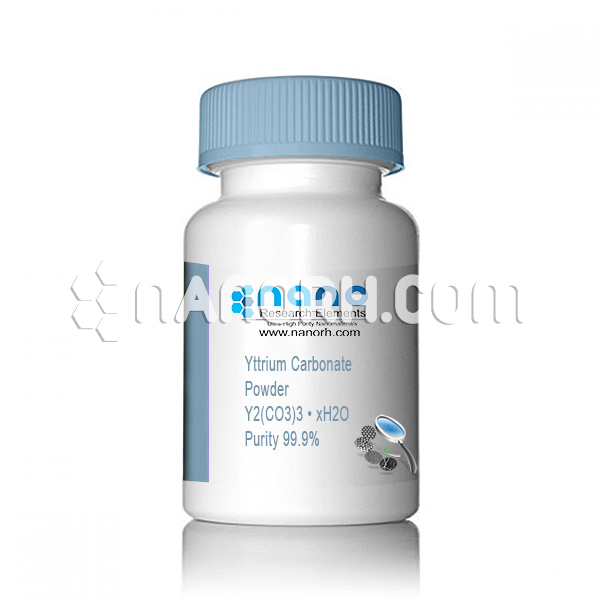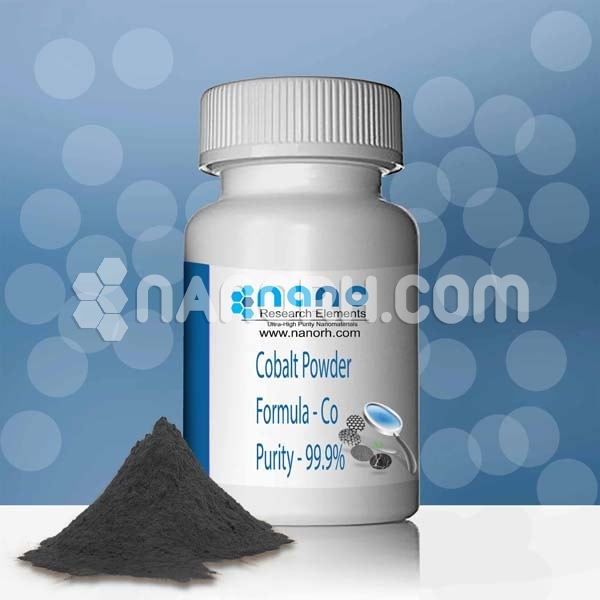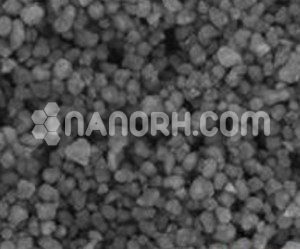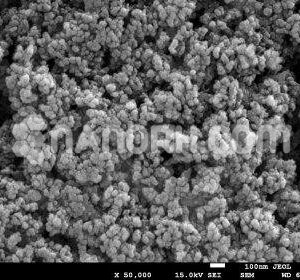| Yttrium Carbonate Powder | |
| Product No | NRE-11287 |
| CAS | 38245-39-5 |
| Purity | 99.9% |
| Formula | Y2(CO3)3 • xH2O |
| APS | <40 µm (can be customized) |
| Color | White |
| Molecular Weight | 357.84 g/mol |
| Density | NA |
| Melting Point | NA |
| Boiling Point | NA |
Yttrium Carbonate Powder
Yttrium Carbonate powder is an inorganic compound consisting of yttrium (Y) and carbonate ions (CO₃²⁻). It is typically found as a white, odorless powder that is water-soluble under certain conditions. Yttrium is a rare earth element belonging to the lanthanide series of the periodic table and has atomic number 39. Yttrium carbonate is one of the important intermediate compounds in the production of various yttrium-based products, such as yttrium oxide (Y₂O₃) and yttrium metal.
Applications
Production of Yttrium Oxide (Y₂O₃):
One of the primary uses of yttrium carbonate is as a precursor to the synthesis of yttrium oxide (Y₂O₃), a crucial material in various high-tech applications. Yttrium oxide is widely used in the manufacture of phosphors, ceramics, and superconductors.
To convert yttrium carbonate to yttrium oxide, it is heated to high temperatures (calcined), a process that drives off the carbonate component, leaving behind yttrium oxide. Yttrium oxide is essential for the production of high-efficiency LEDs, cathode ray tubes, solid-state lasers, and advanced materials for the aerospace and electronics industries.
Phosphors and Display Technology:
Yttrium carbonate is a key precursor in the production of yttrium-based phosphors. When doped with other elements such as europium or terbium, yttrium oxide (produced from yttrium carbonate) forms red and green phosphors that are widely used in television screens, monitors, LEDs, and fluorescent lighting.
These yttrium-based phosphors are essential for color display technologies, where the yttrium element contributes to the brightness and color rendering of the displays.
Production of Yttrium Metal:
Yttrium carbonate is an important precursor in the production of yttrium metal. Through a series of chemical reduction processes, yttrium carbonate can be reduced to yttrium metal, which has applications in advanced alloys, particularly those used in high-performance aerospace and nuclear applications.
Yttrium metal is used in the creation of high-strength, corrosion-resistant alloys that can endure extreme conditions, such as those encountered in aircraft engines, gas turbines, and nuclear reactors.
Catalysts and Catalytic Processes:
Yttrium carbonate is explored in catalysis, particularly in the production of catalysts for petrochemical refining and hydrogenation reactions. Yttrium compounds, including those derived from yttrium carbonate, have shown promise as catalyst supports in various reactions due to their high thermal stability and ability to enhance catalytic activity.




